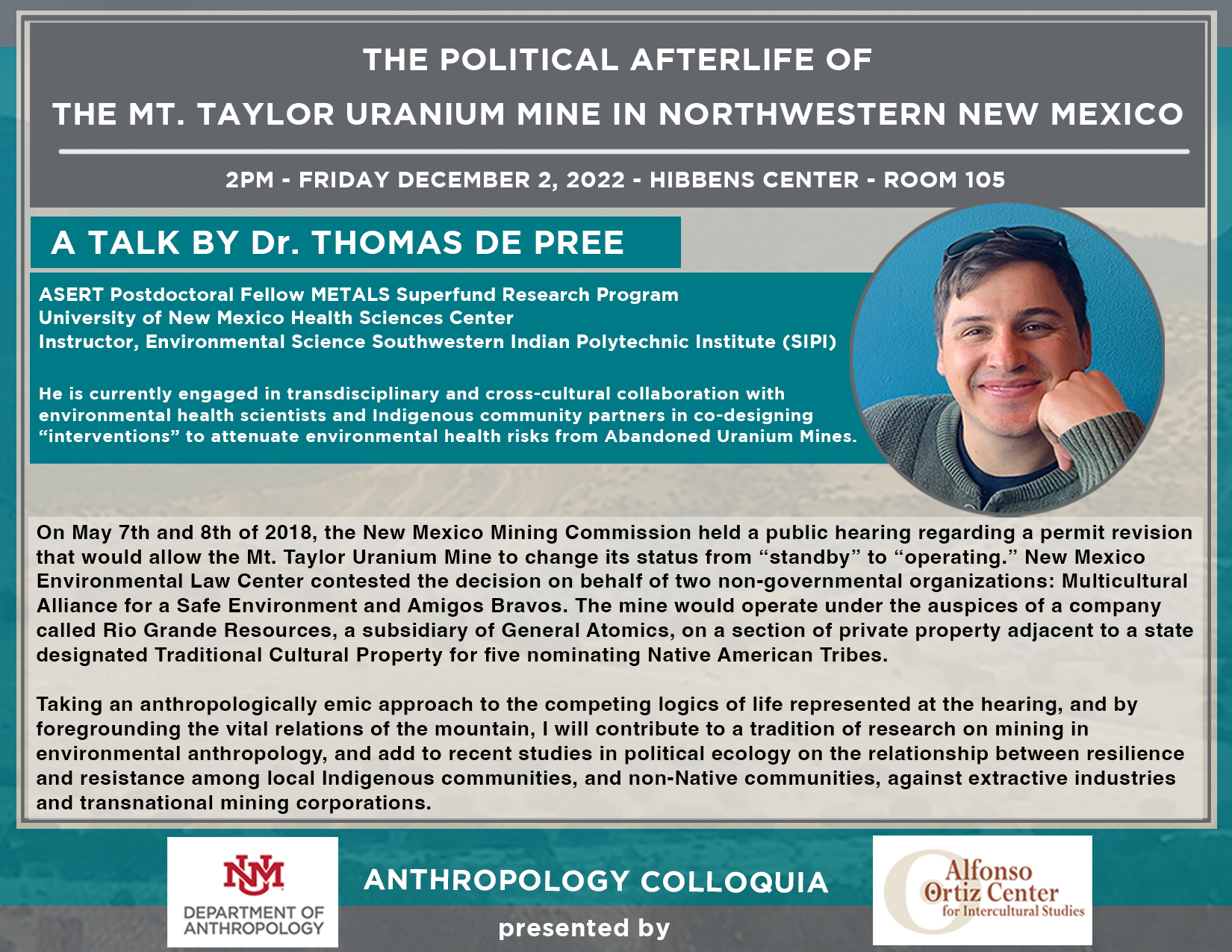Anthropology Colloquia Series: Dr. Thomas De Pree
--Event--
Start Date: Dec 02, 2022 - 02:00pm
Location: Hibben Center, Room 105
"The Political Afterlife of the Mt. Taylor Uranium Mine in Northwestern New Mexico"
Abstract: On May 7th and 8th of 2018, the New Mexico Mining Commission held a public hearing regarding a permit revision that would allow the Mt. Taylor Uranium Mine to change its status from “standby” to “operating.” New Mexico Environmental Law Center contested the decision on behalf of two non-governmental organizations: Multicultural Alliance for a Safe Environment and Amigos Bravos. The mine would operate under the auspices of a company called Rio Grande Resources, a subsidiary of General Atomics, on a section of private property adjacent to a state designated Traditional Cultural Property for five nominating Native American Tribes. Because the mine did not appear economically viable, the petitioners characterized it as “a classic zombie mine scenario,” indicating that the mine was not quite dead and not quite alive. Drawing from an event ethnography of the hearing, I will describe the different forms of vitalizing discourse associated with both the economic lifecycle of the mine and the vital relations of the mountain. Taking an anthropologically emic approach to the competing logics of life represented at the hearing, and by foregrounding the vital relations of the mountain, I will contribute to a tradition of research on mining in environmental anthropology, and add to recent studies in political ecology on the relationship between resilience and resistance among local Indigenous communities, and non-Native communities, against extractive industries and transnational mining corporations.

Thomas De Pree is a postdoctoral fellow at the University of New Mexico Health Sciences Center, key personnel in the Community Engagement Core of the Metal Exposure and Toxicity Assessment on Tribal Lands in the Southwest (METALS) Superfund Research Program, and an instructor in Environmental Science at Southwestern Indian Polytechnic Institute (SIPI). He holds a Ph.D. and M.S. in Science and Technology Studies from Rensselaer Polytechnic Institute, and an M.A. in Anthropology and Education from Teachers College, Columbia University. He has conducted over four years of multi-locale ethnographic research on the diverse forms of expertise and dense entanglements of science, technology, and politics invested in cleaning up abandoned uranium mines (AUMs) in northwestern New Mexico. He is currently engaged in transdisciplinary and cross-cultural collaboration with environmental health scientists and Indigenous community partners in co-designing “interventions” to attenuate environmental health risks from AUMs.

